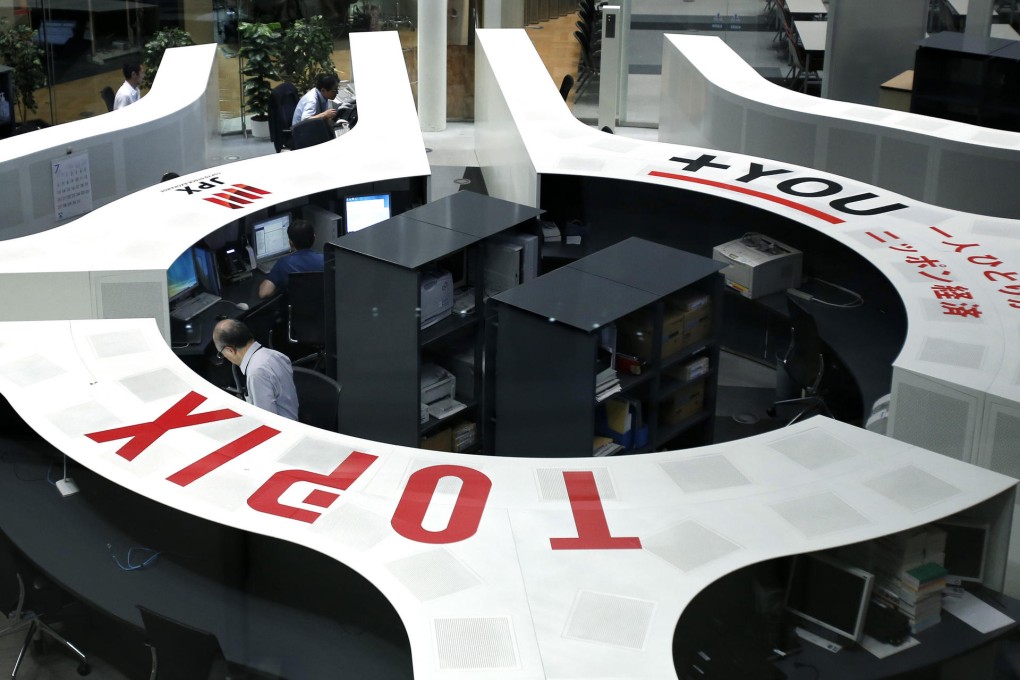Tokyo allows smaller price increments on some shares to boost trading
Japanese stock exchange fights back for business from private trading venues by reducing the price increments of shares of larger companies

The Tokyo stock exchange began allowing smaller price increments on shares of about 80 of Japan's biggest companies yesterday as it seeks to win back business from private trading venues.
Topix 100 Index members with shares that cost between 1,000 yen (HK$76.50) and 5,000 yen now trade in 0.5 yen price movements, down from one yen. This includes Honda Motor and Japan Tobacco.
Shares priced at less than 1,000 yen, such as Mizuho Financial Group, now move in 0.1 yen bands, a tenth of the previous size.
Investors in Japan were already able to trade in smaller increments using the country's two alternative platforms that display prices, SBI Japannext and Chi-X Japan.
If overall liquidity is boosted … the net beneficiary will be everyone
"This would be the way the exchange looks at fighting back," said Mikey Hsia, a sales trader at Sunrise Brokers. "Naturally this will add to the question whether it benefits one type of market participant over another. But in the long run, if overall liquidity is boosted in the underlying assets we are trading, the net beneficiary will be everyone trading in that arena."